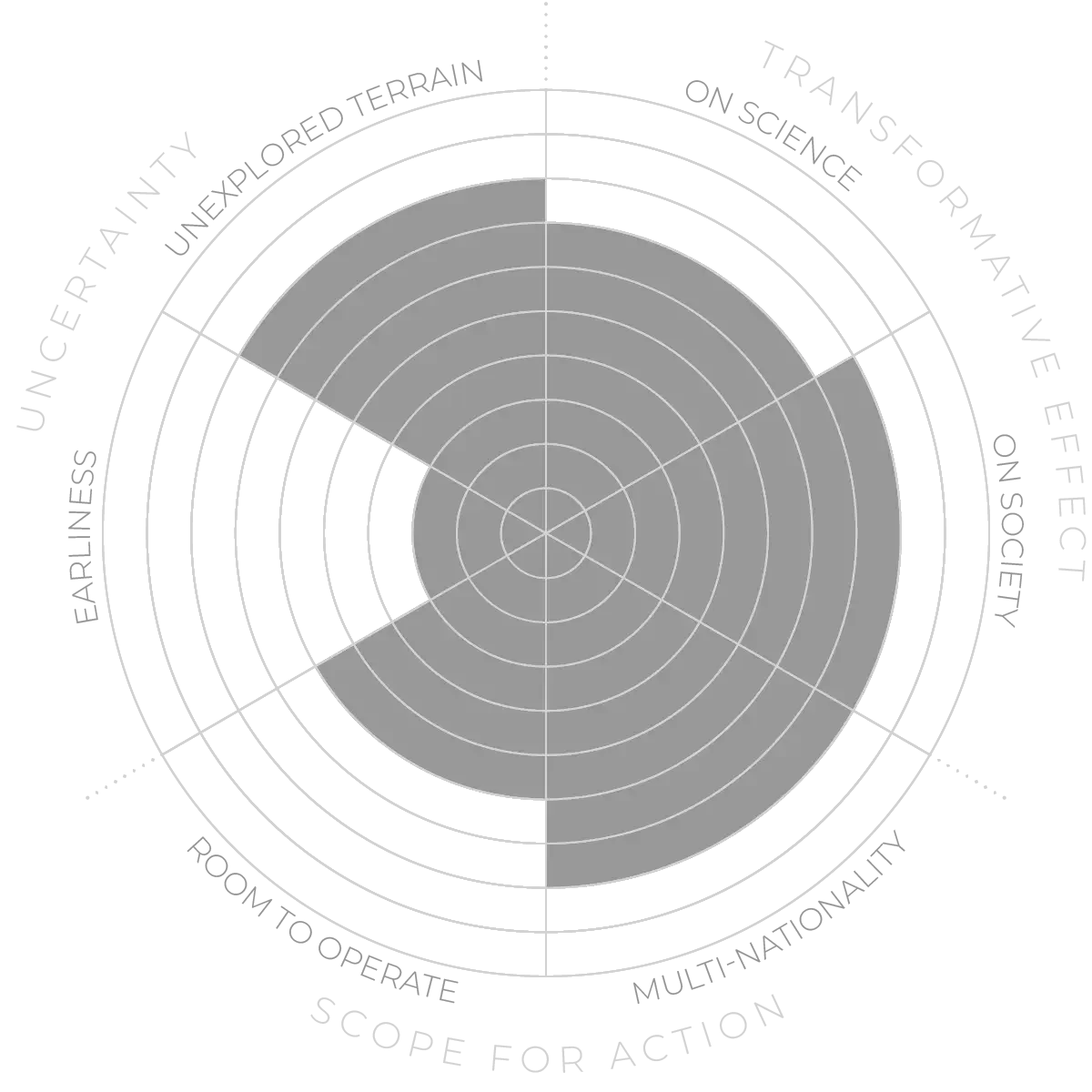Future Horizons:
10-yearhorizon
Earth’s formation is better understood
25-yearhorizon
Origin of Earth’s water clarified
Improvements in our understanding of the geological record will continue to narrow down when and how life may have formed. This may happen through discovery of hard evidence of life at an earlier date, through innovative synthetic biology and evolutionary systems biology tools that reconstruct ancient life,19 or through demonstrations that conditions before a certain point were unremittingly hostile to life.20
There is currently limited geological evidence to illuminate conditions on the early Earth. New discoveries about the temperature range, the presence or absence of exposed land, and the chemical make-up of the oceans and atmosphere, as well as the elemental composition, would all provide useful and significant information from which research could gain a better understanding of which scenarios of the origin of life are plausible.21,22,23 These questions are bound up with fundamental problems in geology, notably the origin of modern plate tectonics.24
The geological record - Anticipation Scores
The Anticipation Potential of a research field is determined by the capacity for impactful action in the present, considering possible future transformative breakthroughs in a field over a 25-year outlook. A field with a high Anticipation Potential, therefore, combines the potential range of future transformative possibilities engendered by a research area with a wide field of opportunities for action in the present. We asked researchers in the field to anticipate:
- The uncertainty related to future science breakthroughs in the field
- The transformative effect anticipated breakthroughs may have on research and society
- The scope for action in the present in relation to anticipated breakthroughs.
This chart represents a summary of their responses to each of these elements, which when combined, provide the Anticipation Potential for the topic. See methodology for more information.



